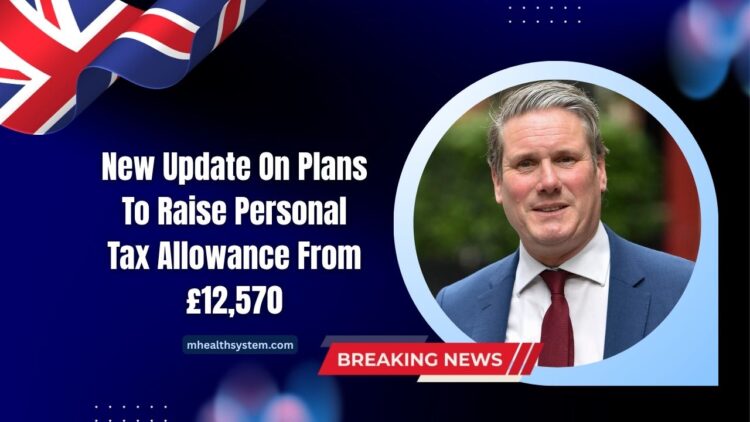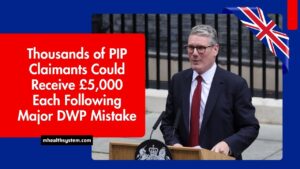A new movement is gaining ground to raise the UK’s personal tax allowance, which has remained frozen at £12,570 since 2021.
Despite rising inflation and stagnant wages, millions of low-income earners are now paying more tax through a mechanism known as fiscal drag.
As political and public pressure mounts, new proposals and petitions aim to increase the tax-free threshold, offering potential relief for struggling households.
Why the Personal Tax Allowance Matters
The personal tax allowance is the amount of income you can earn each year without paying income tax. Since 2021, this threshold has been frozen at £12,570, meaning more people are being pulled into the tax system simply because of inflation-based pay increases.
This freeze has acted like a stealth tax, impacting lower-income earners the hardest. While inflation has surged, the threshold has stayed static, reducing the effective disposable income for many workers and pensioners.
The Campaign for Change
A petition calling for a rise in the personal allowance to £20,000 attracted over 281,000 signatures before it closed, prompting a Parliamentary debate.
While Treasury officials estimate the cost of such a rise at over £50 billion, campaigners argue that this increase would put more money back into people’s pockets, boost consumer spending, and reduce reliance on government benefits.
A new petition now proposes a moderate increase to £15,597, aligning the threshold with inflation data since 2021. Additionally, the higher tax rate threshold (currently £50,271) would rise to £62,379.02 under this proposal.
Latest Government Response
During a recent Westminster Hall debate, Treasury Minister James Murray acknowledged public concern but emphasized the financial constraints of such a policy.
He stated that raising the allowance to £20,000 would cost more than the £45 billion in tax cuts proposed in the 2022 mini-budget.
However, he also noted that no new freezes have been introduced and that the UK still has one of the most generous personal allowances among OECD and G7 countries.
Public and Political Reactions
MPs across party lines have voiced concerns:
- Daisy Cooper (Liberal Democrat) described the petition as a “cry for help” from families gripped by a cost of living crisis.
- Tom Morrison (Liberal Democrat) urged the government to reduce the tax burden and highlighted the impact of frozen thresholds on families and pensioners.
- Tory MPs Wendy Morton and Sir Ashley Fox argued that pensioners are being unfairly burdened under current tax policies.
Campaigners and politicians alike see raising the personal allowance as a critical step toward alleviating economic hardship and reducing child poverty, which now affects 1 in 5 children, according to Resolve Poverty.
Proposed Changes
| Current Threshold | Proposed Increase | Details |
|---|---|---|
| £12,570 (Personal Allowance) | £15,597 | Adjusted to match Bank of England inflation rate since 2021 |
| £50,271 (Higher Rate) | £62,379.02 | Based on inflation-adjusted calculations |
| Tax Cost Estimate | £50 Billion | Estimated cost to raise allowance to £20,000 |
| Public Petition Signatures | 281,792 | Closed after triggering Parliamentary debate |
The freeze on the personal tax allowance has effectively increased the tax burden for millions during a time of economic difficulty.
With rising support from the public and political debate intensifying, there’s growing pressure on the government to reconsider its position.
While cost remains a major hurdle, advocates argue that raising the allowance could boost disposable income, stimulate economic activity, and ease the financial pressure on working families and pensioners alike.
FAQs
What is the personal tax allowance in the UK currently?
The current personal tax allowance is £12,570, meaning income up to this amount is tax-free.
Will the personal tax allowance increase in 2025?
As of now, no confirmed increase has been announced. However, strong public pressure and petitions are pushing for a rise.
How much would raising the allowance to £20,000 cost the government?
The Treasury estimates the cost at over £50 billion, a figure that poses significant fiscal challenges.




